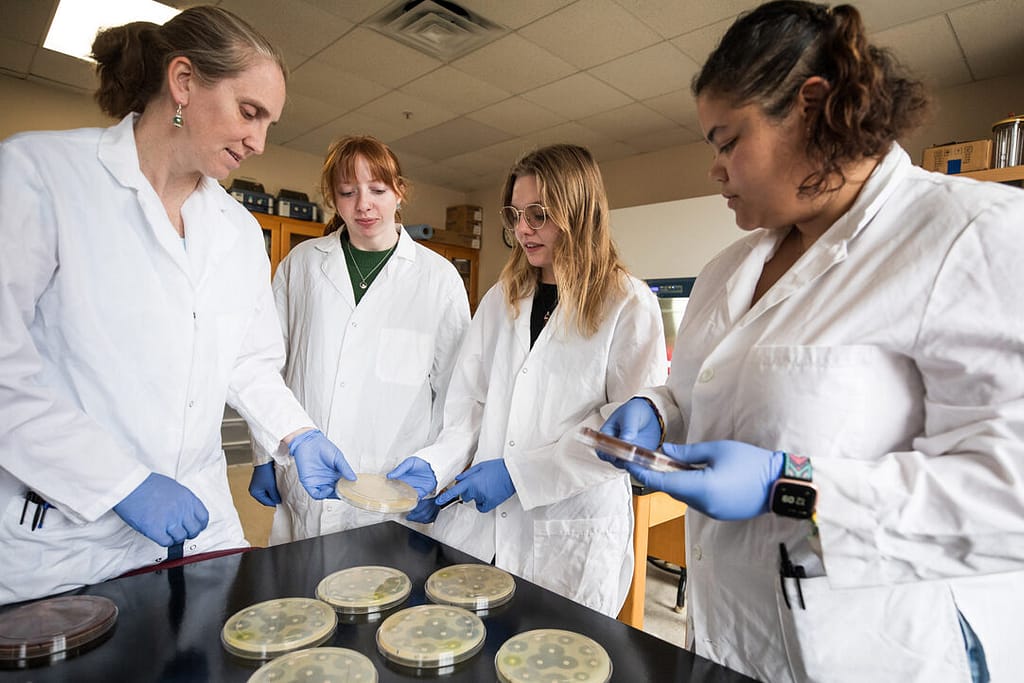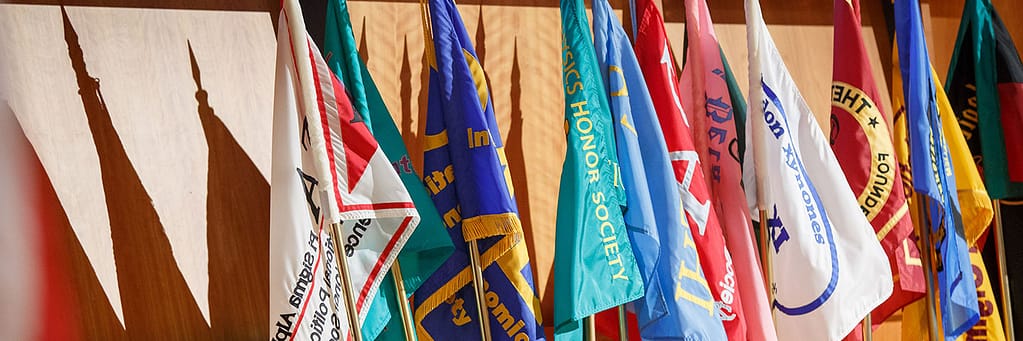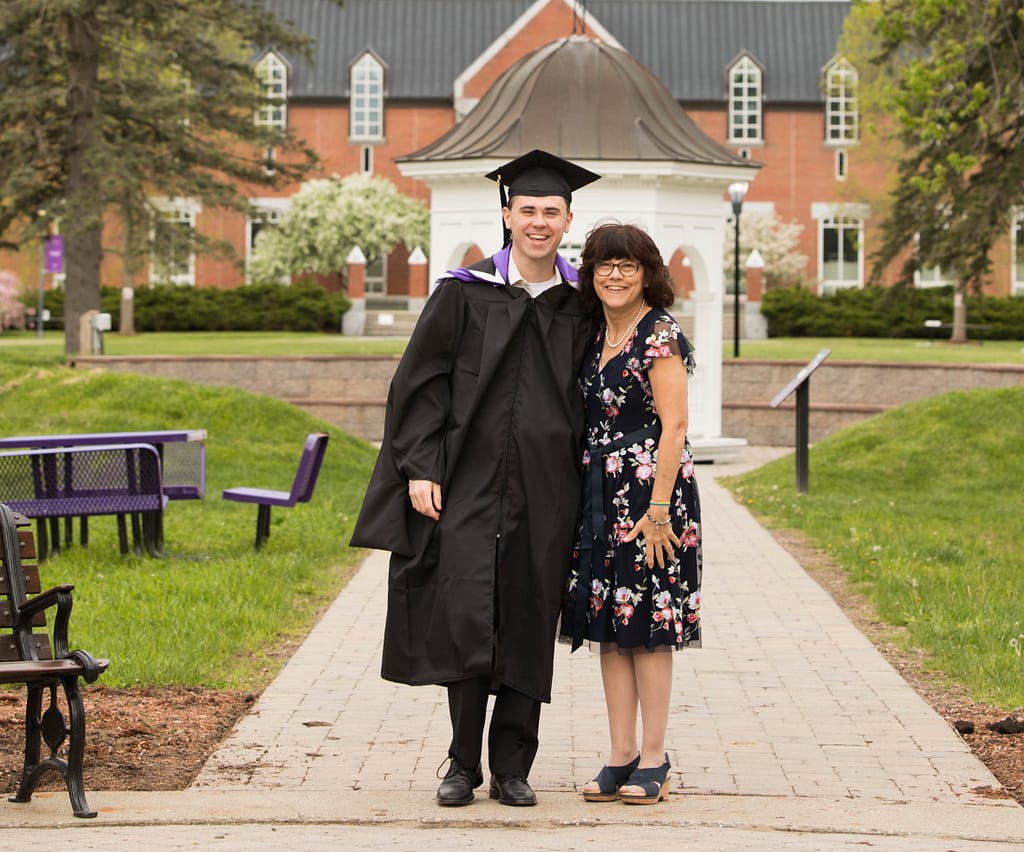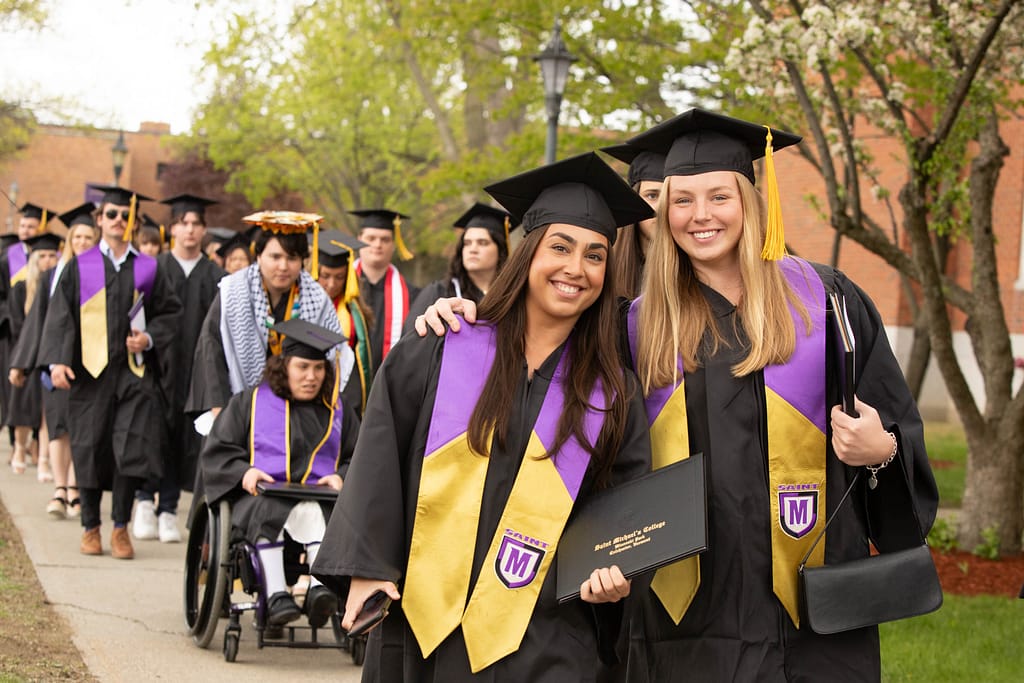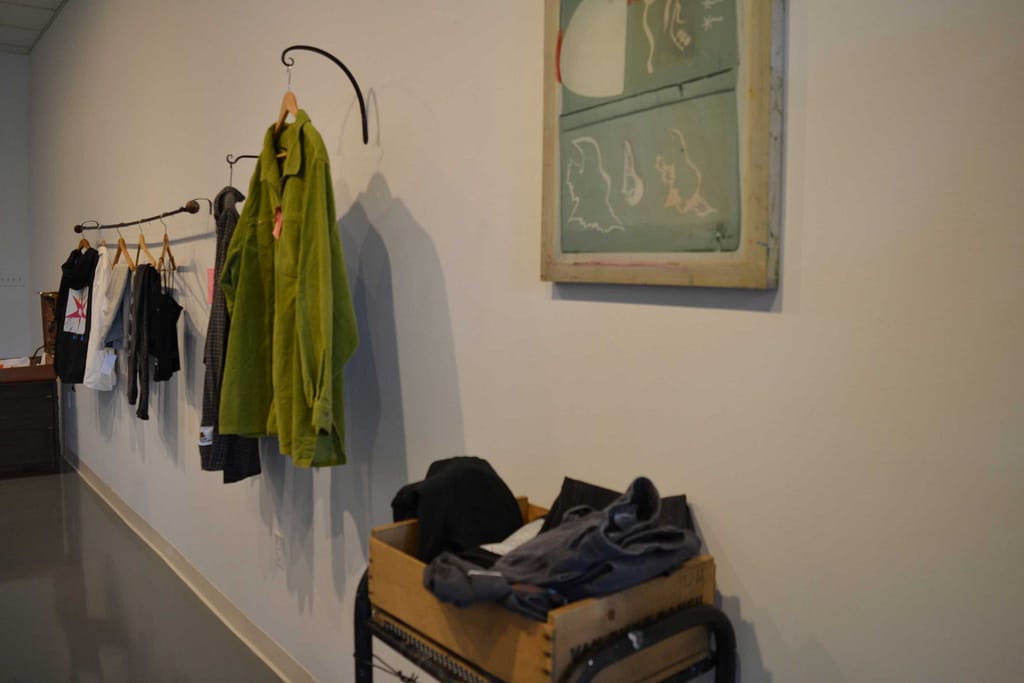‘Stop mowing what you don’t use:’ Professor makes case for ‘unlawning,’ individual ecological impact
There are easy solutions for reversing the decline of pollinator populations, says Saint Michael’s Professor Brian Collier – people simply need to stop mowing the lawn they don’t use, or stop mowing altogether.
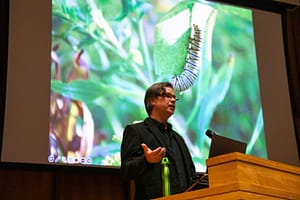
Prof. Collier during the seminar.
Collier presented his ideas for individual action during a seminar on Oct. 10 through the “Saint Michael’s Presents: Solutions for Social Impact” series. The Fine Arts professor has long combined his expertise in art and design with his interest in ecological causes, which has culminated in his “Unlawning America” project, which launched in 2017.
“Like almost all my work for the past 25 years, ‘Unlawning America’ is a research-based interdisciplinary art project that examines specific examples of our impact on the other species we share the planet with,” Collier said. “I’m particularly interested in increasing awareness of our inseparable connection to all aspects of the natural world.”
He added, “My ultimate goal, in part, is to create and present work that makes it difficult for people to ignore the animals and plants they encounter in their daily lives – inspiring them to make choices that are less harmful to our shared ecosystems.”
One of those choices? Moving away from mowing the lawn, which Collier said is an ecologically harmful act that has become commonplace in society. “Stop mowing what you don’t use,” is a good starting point, Collier said.
If enough people buy into this idea, he argued, there could be a serious positive impact on the populations of insects that act as pollinators, the plants they pollinate, and on overall biodiversity – turning an ecological desert into something much richer.
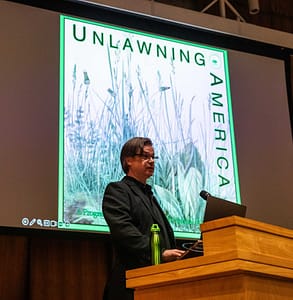
Prof. Collier during the seminar.
Plus, mowing the lawn less means lower releases of carbon (and a smaller overall carbon footprint), cleaner water, and less unburned oil and gas in the air. These are all environmental plusses, Collier said.
To back up his argument, Collier showed photographs of places he had a hand in “unlawning,” which were covered with colorful wildflowers and visited often by bumblebees, butterflies and birds. One of those places is on Saint Michael’s campus near the Gilbrook Nature Area, which was done in collaboration with The Patrick ’61 and Marcelle Leahy Center for the Environment.
“Unlawning” is becoming a more acceptable practice, but there’s yet to be a significant shift
away from mowing the lawn, Collier said. The reasons people haven’t yet adopted the practice range from preferred aesthetics to conformity with neighbors or policies set by homeowners’ associations.
“My goal is to help create a cultural shift where the weird neighbor is no longer the one who doesn’t mow their lawn, but instead is the one who does,” Collier said.
Collier has developed “unlawning” kits and advice for people interested in participating in the ecological movement. More information can be found on his website unlawningamerica.societyrne.net.
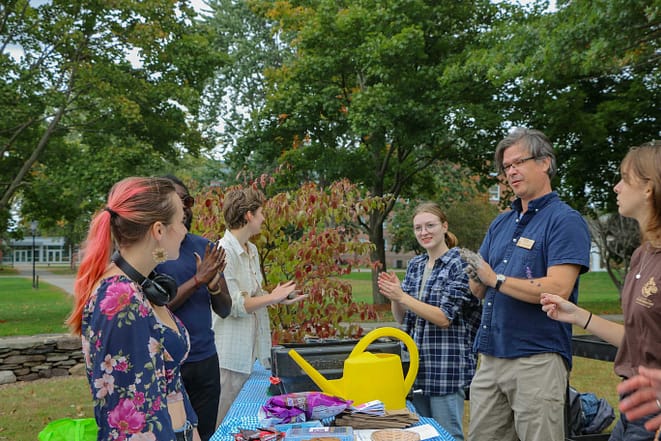
At a recent event, Prof. Collier showed the campus community how to make seed balls to be thrown in the spring. (Photo by Sophie Burt ’26)
The next “Saint Michael’s Presents: Solutions for Social Impact” seminar will take place on Oct. 24 at 5 p.m. in the McCarthy Arts Center Recital Hall, led by Physics Professor Alain Brizard who will discuss the question, “Is there a clean-energy path to a stable climate future?”
Past seminars can be viewed at smcvt.edu/smcpresents.
